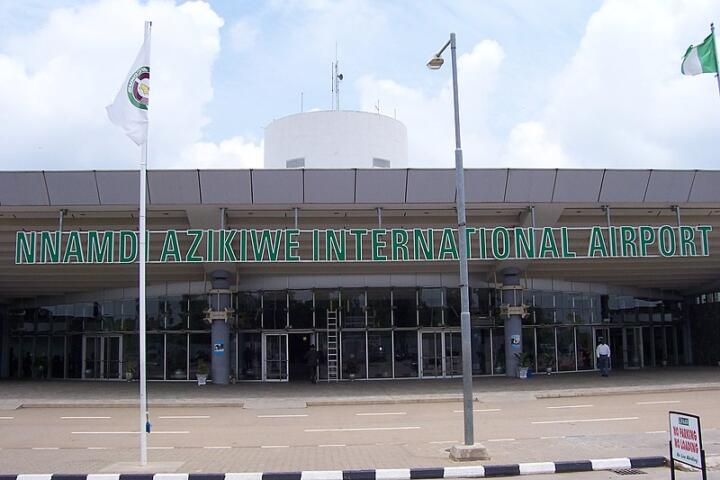Six years have passed since the Federal Government, under the leadership of the Ministry of Aviation, undertook the extensive reconstruction of the runway at the Nnamdi Azikiwe International Airport (NAIA) in Abuja. This significant endeavor, led by then Minister of Aviation, Sen. Hadi Sirika, involved a six-week shutdown of the airport to facilitate the total overhaul of the runway.
The government invested a substantial sum of approximately N5.8 billion in these crucial repairs, emphasizing the critical nature of the airport’s infrastructure.
Fast forward to the present, and Nairametrics can now confirm that the taxiway at NAIA is plagued with cracks, posing a potential threat to the safety of its users. Despite the considerable investment and effort directed towards the runway, the taxiway appears to have been neglected, raising concerns about the overall maintenance and longevity of the airport’s infrastructure.

The standard lifespan of a runway and taxiway typically ranges between 30 to 40 years, especially for airports with high levels of activity. However, it has come to light that the taxiway at NAIA is exhibiting signs of deterioration a mere six years after the comprehensive reconstruction. This deterioration manifested in a concerning incident involving an Aero Contractors Boeing 737 aircraft on a Sunday, as it navigated the compromised taxiway.
Commenting on the matter, Grp. John Ojikutu (retd), the Chief Executive Officer of Centurion Securities Limited, highlighted the lack of periodic maintenance on both the runway and taxiway. He emphasized that routine maintenance, expected to be conducted at least annually, seems to have been overlooked since the runway’s reconstruction in the first quarter of 2017. Ojikutu questioned the quality of the repairs carried out by Julius Berger within a remarkably short period and stressed the importance of holding the construction firm accountable for the current state of the infrastructure.
Aviation analyst Mr. Cyril Obuah echoed these concerns, attributing the deteriorating condition of the taxiway to the substandard work executed by the Federal Government in 2017. He emphasized that the taxiway, a distinct component from the runway, has not received the necessary repairs despite the substantial financial investment in the overall reconstruction project.
Adding to the discourse, former Nigeria Airways pilot Capt. Mohammed Badamasi pointed out the disparity between the runway and taxiway. While the runway underwent a multimillion-naira reconstruction, the taxiway, essential for aircraft movements on the ground, was seemingly neglected. Badamasi expressed regret that since the official reopening of the airport, the taxiway and apron, where aircraft are parked, have not undergone any significant improvements.
The dire state of the taxiway was brought to the forefront when an Aero Contractors Boeing 737 aircraft, registered as 5N-BYQ, encountered a serious incident. The aircraft’s nose wheel became lodged in the grass verge of the taxiway, with its fuselage encroaching on the runway. This incident prompted the temporary closure of the runway until the aircraft could be safely towed away.
Harking back to the initial reconstruction project, Sen. Hadi Sirika had outlined the necessity of the N5.8 billion investment in January 2017. He underscored the critical role of the runway in the country’s economy, noting that it had been constructed over 30 years ago without significant repairs. The minister assured a decade of functionality, asserting that the reconstructed runway would serve the country for an extended period.
In light of recent events and the evident challenges with the taxiway, questions arise about the effectiveness of the initial reconstruction efforts and the subsequent maintenance practices. The need for periodic assessments, repairs, and upgrades, especially for critical components like the taxiway, cannot be overstated. As discussions unfold regarding the state of NAIA’s infrastructure, it becomes imperative for responsible authorities to address these concerns comprehensively, ensuring the safety and efficiency of air travel at one of the nation’s key airports.
Support InfoStride News' Credible Journalism: Only credible journalism can guarantee a fair, accountable and transparent society, including democracy and government. It involves a lot of efforts and money. We need your support. Click here to Donate
